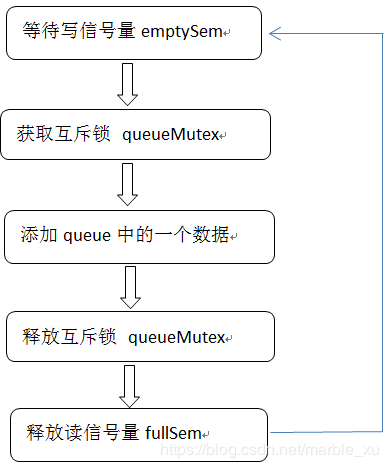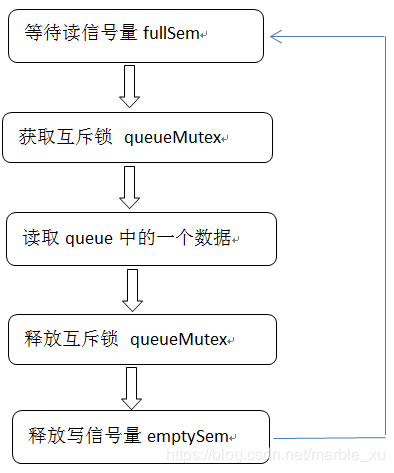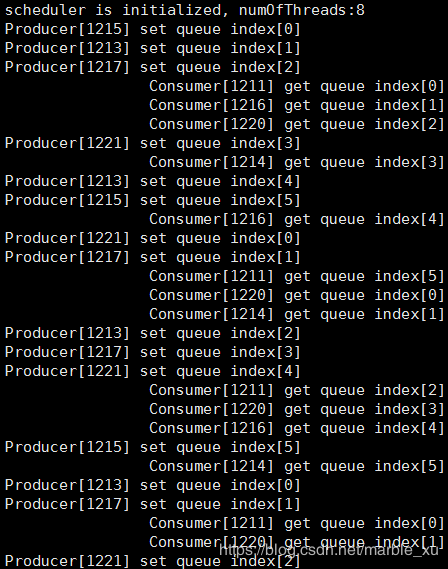TDengine代码学习(1):生产者与消费者模式
生产者与消费者模式
- 代码介绍
- 测试效果
- 完整测试代码
代码介绍
学习TDengine tsched.c 中的代码,这是多个生产者和消费者的模式,所以基于单个生产者和消费者的忙等待方式是不适合的,会消耗cpu资源,必须要用到信号量。
具体的实现方式:
- 使用两个信号量和一个互斥锁。
- 互斥锁 queueMutex 用来保护queue中的数据, 生产者和消费者在访问queue前都需要获取这个互斥锁。
- 信号量 emptySem 表示queue中是否有空的位置,可以放入新数据。
- 信号量 fullSem 表示queue中是否有数据,可以被读取。
- 每个消费者和生产者都是一个单独的线程。
生产者的处理循环图如下:

消费者的处理循环图如下:

对原来的代码进行了简单的修改,用来测试代码。
测试效果
为了能够看到正确的线程执行顺序,不能直接使用printf函数,所以使用一个全局的字符数组record,在每个线程读写数据的时候向这个全局数组添加内容。

完整测试代码
在linux 下面运行测试。
编译需要加上 -lpthread 选项。例子如下:
gcc -o producer_consumer producer_consumer.c -lpthread
#include